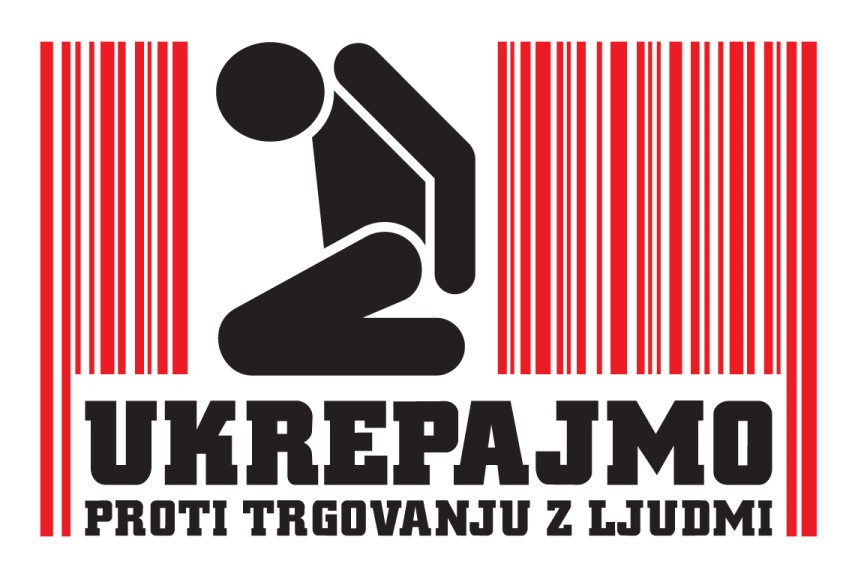18 October – European Anti-Trafficking Day
"For almost two decades, preventing human trafficking has been a priority task of the Government of the Republic of Slovenia, which has realised its commitment to the elimination of this phenomenon with numerous measures, also by appointing a so-called national anti-trafficking coordinator and the establishment of the governmental inter-ministerial working group, which has been working since 2003. This is an exceptionally multi-disciplinary field that requires a coordinated approach of various stakeholders and must, in addition to preventive activities, investigation of criminal offences and prosecution of offenders also incorporate suitable protection and assistance to victims of human trafficking. For several years, the Ministry of the Interior has been financing the programme providing assistance to victims of human trafficking in a safe place, while the police has been co-financing the programme for reintegration of victims of human trafficking for the second consecutive year within the Internal Security Fund. Detection of the relevant issue depends particularly on proactive activities of the police since perpetrators who exploit vulnerable, poor and lonely individuals, unfortunately too often go unpunished. Today, when we are faced with an increase in migration and the COVID-19 epidemic and its consequences, vulnerable individuals who already live in uncertain circumstances are at an even greater risk of becoming victims of human trafficking. In these critical times, it is crucial that law enforcement authorities enhance their efforts in combating trafficking in human beings," emphasised Aleš Hojs, the Minister of the Interior.
Sexual exploitation is still the most frequently recognised form of human trafficking in Slovenia. On the occasion of this year’s EU Anti-Trafficking Day, the Inter-Ministerial Working Group for Combating Trafficking in Human Beings wishes to draw the attention to other less recognised forms of this phenomenon, including forced labour. Detecting, investigating and especially proving these types of criminal offences is very challenging since the injured parties do not usually recognise themselves as victims and justify the acts of offenders, thus enabling their further exploitation. Furthermore, these criminal offences are nowadays no longer implemented by means of physical violence, as the methods of exploitation are becoming more sophisticated and are based on psychological violence and emotional blackmail.
One of the major challenges in combating human trafficking is the lack of understanding of this phenomenon. The Inter-Ministerial Working Group for Combating Trafficking in Human Beings strives for continuous informing of general public and vulnerable groups on human trafficking and regular education of experts who come into contact with this phenomenon during their work. With various activities, it also highlights the responsibility of users of services, which are under different forms of coercion implemented by victims of trafficking in human beings. Irrespective of the intense efforts of competent state authorities and non-governmental and humanitarian organisations with regard to preventing and combating human trafficking, numerous victims still remain unidentified. The state is primarily responsible to combat human trafficking and protect the victims, although an even stronger integration with the private sector, to which the majority of forced labour cases is linked directly or indirectly, must be established for more effective work in this field. To raise the awareness of as many employers as possible about the relevant issue and to mark the EU Anti-Trafficking Day, the Ministry of the Interior issued the handbook, Prevent Forced Labour, which provides necessary information to the employers with whom risks exists that they could be connected with forced labour. The Inter-Ministerial Working Group for Combating Trafficking in Human Beings asks the employers to comply with the handbook, particularly when employing foreign workers and contracting subcontractors.
"Globally, the private sector plays an ever increasing role in preventing human trafficking. We wish that as many Slovenian companies as possible adopt measures with which it will be ensured that their supply chains are not linked with forced labour. The employers must be aware that involvement in forced labour damages their reputation and that such practice is not permissible in modern society. Since 2015, the Slovenian legislation also foresees punishment for users of services of victims of human trafficking if they know that the use of services of victims of criminal offences of trafficking in human beings is involved," stressed Tina Princes Damjanovič, the Anti-Trafficking Coordinator.


